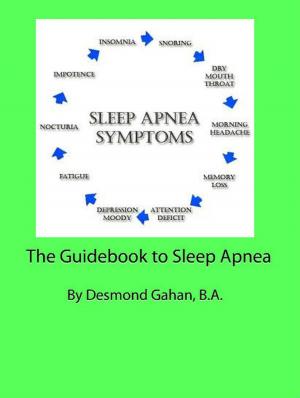Curing Premenstrual Syndrome Naturally: Women’s Health
Nonfiction, Health & Well Being, Health, Health Care Issues, Women&| Author: | Elizabeth Cameron, SRN | ISBN: | 9781386340744 |
| Publisher: | Sepharial | Publication: | August 7, 2017 |
| Imprint: | Language: | English |
| Author: | Elizabeth Cameron, SRN |
| ISBN: | 9781386340744 |
| Publisher: | Sepharial |
| Publication: | August 7, 2017 |
| Imprint: | |
| Language: | English |
Premenstrual syndrome (PMS) has a wide variety of symptoms, including mood swings, tender breasts, food cravings, fatigue, irritability and depression. It's estimated that as many as 3 of every 4 menstruating women have experienced some form of premenstrual syndrome.
Symptoms tend to recur in a predictable pattern. But the physical and emotional changes you experience with premenstrual syndrome may vary from just slightly noticeable all the way to intense.
Still, you don't have to let these problems control your life. Treatments and lifestyle adjustments can help you reduce or manage the signs and symptoms of premenstrual syndrome.
The list of potential signs and symptoms for premenstrual syndrome is long, but most women only experience a few of these problems.
Emotional and behavioral symptoms
- Tension or anxiety
- Depressed mood
- Crying spells
- Mood swings and irritability or anger
- Appetite changes and food cravings
- Trouble falling asleep (insomnia)
- Social withdrawal
- Poor concentration
Physical signs and symptoms
- Joint or muscle pain
- Headache
- Fatigue
- Weight gain related to fluid retention
- Abdominal bloating
- Breast tenderness
- Acne flare-ups
- Constipation or diarrhea
For some, the physical pain and emotional stress are severe enough to affect their daily lives. Regardless of symptom severity, the signs and symptoms generally disappear within four days of the start of the menstrual period for most women.
But a small number of women with premenstrual syndrome have disabling symptoms every month. This form of PMS is called premenstrual dysphoric disorder (PMDD).
PMDD signs and symptoms include depression, mood swings, anger, anxiety, feeling overwhelmed, difficulty concentrating, irritability and tension.
When to see a doctor
If you haven't been able to manage your premenstrual syndrome with lifestyle changes and the symptoms of PMS are affecting your health and daily activities, see your doctor.
Premenstrual syndrome (PMS) has a wide variety of symptoms, including mood swings, tender breasts, food cravings, fatigue, irritability and depression. It's estimated that as many as 3 of every 4 menstruating women have experienced some form of premenstrual syndrome.
Symptoms tend to recur in a predictable pattern. But the physical and emotional changes you experience with premenstrual syndrome may vary from just slightly noticeable all the way to intense.
Still, you don't have to let these problems control your life. Treatments and lifestyle adjustments can help you reduce or manage the signs and symptoms of premenstrual syndrome.
The list of potential signs and symptoms for premenstrual syndrome is long, but most women only experience a few of these problems.
Emotional and behavioral symptoms
- Tension or anxiety
- Depressed mood
- Crying spells
- Mood swings and irritability or anger
- Appetite changes and food cravings
- Trouble falling asleep (insomnia)
- Social withdrawal
- Poor concentration
Physical signs and symptoms
- Joint or muscle pain
- Headache
- Fatigue
- Weight gain related to fluid retention
- Abdominal bloating
- Breast tenderness
- Acne flare-ups
- Constipation or diarrhea
For some, the physical pain and emotional stress are severe enough to affect their daily lives. Regardless of symptom severity, the signs and symptoms generally disappear within four days of the start of the menstrual period for most women.
But a small number of women with premenstrual syndrome have disabling symptoms every month. This form of PMS is called premenstrual dysphoric disorder (PMDD).
PMDD signs and symptoms include depression, mood swings, anger, anxiety, feeling overwhelmed, difficulty concentrating, irritability and tension.
When to see a doctor
If you haven't been able to manage your premenstrual syndrome with lifestyle changes and the symptoms of PMS are affecting your health and daily activities, see your doctor.















